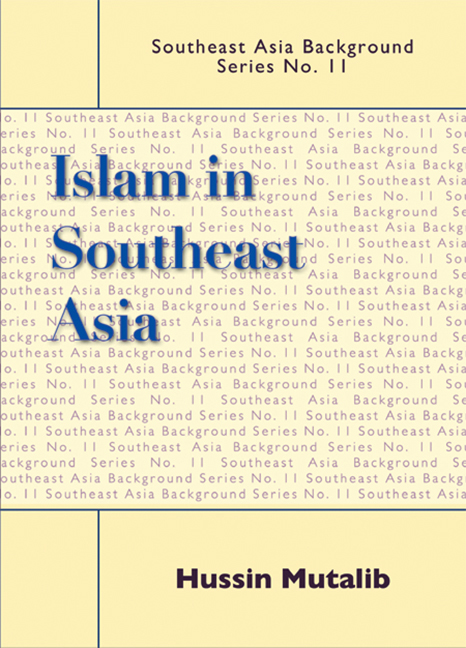Book contents
3 - Malaysia
Published online by Cambridge University Press: 21 October 2015
Summary
Islam has had a long history in Malaysia, ever since the faith “arrived” in its shores in what are now the states of Kedah, Perak, Kelantan and Trengganu, from around the twelfth century BC. Admittedly, this period has been a hotly debated one but the excavation of the “Trengganu stone” bearing the age of this period was a major argument used by some scholars to support the twelfth century origins of the Islamization process in Malaysia. The simplicity of the message of the faith, the role of Muslim Sufis and traders, and the conversion of the Malay Sultans, all helped to spread the religion in the Malay peninsular. From time immemorial, Islam in Malaysia — previously Tanah Melayu (Malay Land) — has been closely aligned with the Malay ethnic community, the majority, indigenous “sons of the soil” (bumiputra).
The role of Malacca (Melaka) in the eventual spread of Islam throughout the Malay world cannot be underestimated. After all, at the height of its power in the fifteenth century, Malacca was the centre of Islam in the entire region of Southeast Asia. When Malacca fell to the Portuguese in 1511, and later, British (1824), its role was taken over by the Johor-Riau kingdom. During British rule (1824–1957), Islam could be said to have been “bureaucratized”. British officials introduced and regulated Islamic institutions such as the Religious Council (Majlis Agama) and the Islamic courts, as well as exercised tremendous influence over the policy implementation of Islamic law (shar'iah) in the country. Although British officials (via Governor Generals, Commissioners and Residents) did not curtail Islam — for instance, Christianity was spread only to non-Malays in the main, and the Sultans' symbolic power over Malays and Islam were left intact — for the most part, however, the advice of British officials, had to be acted upon (Hussin Mutalib 1990; Pangkor Treaty).
When Malaya was approaching Independence in 1957, much debate and controversy occurred among the Sultans, the leading Malay nationalist party, United Malays National Organization (UMNO), the British-initiated Reid Constitutional Commission, and other ethnic communities, as to the position and role that Islam should play in multiracial and multi- religious Malaya.
- Type
- Chapter
- Information
- Islam in Southeast Asia , pp. 25 - 40Publisher: ISEAS–Yusof Ishak InstitutePrint publication year: 2008

